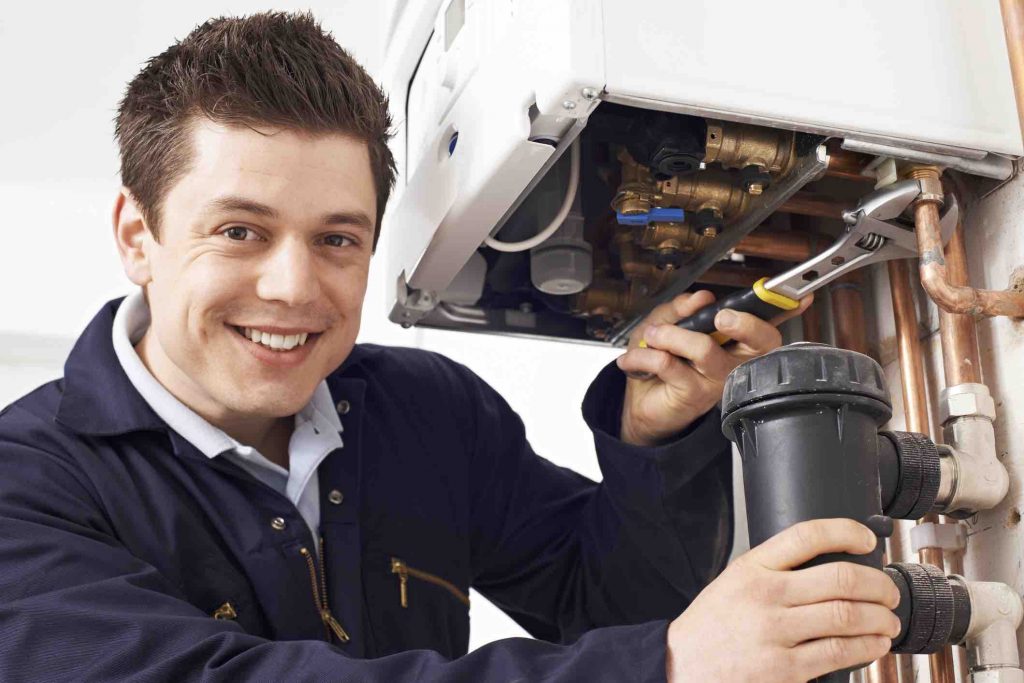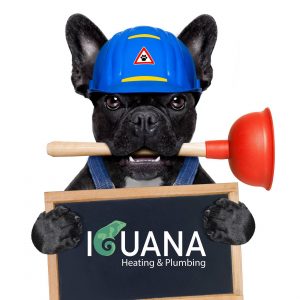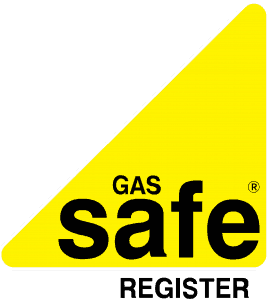Boiler servicing and maintenance is incredibly important, but all too often it’s overlooked by UK homeowners. Boilers are expensive to repair and replace, and when they are not working efficiently, they will also be costing you more to run, but also be a potential hazard to health. Getting your boiler serviced regularly by a Gas Safe Registered company will ensure that the boiler is working optimally and it’s safe to use.
Here’s simple boiler servicing and maintenance tips that every homeowner should keep in mind.
- Service the boiler every year
- Bleed the radiators
- Check the boiler pressure
- Balance the radiators
- Common radiator problems
- Check the flue is accessible
- Look for dripping from the external pipe
- Lag your pipes
- Never try to repair a boiler yourself
1 – Service the boiler every year
Having your boiler serviced annually will keep it running in top condition. The engineer will check that the components of the boiler are all working as intended and give accessible areas a clean. They will also help prevent breakdowns by being able to advise of repairs before they become a boiler breakdown, maximise its lifespan, keep heating bills low and ensure it is protected by the manufacturer’s warranty. If repairs are needed in the manufacturers warranty period, this is often carried out free of charge by the boiler manufacturer.
2 – Bleed the radiators
Over time air can become trapped in your radiators. These pockets of air will prevent the radiator from heating up fully and there may be cold patches. You can tell if it is air because the radiator will be hot at the bottom but cold at the top.
To bleed a radiator:
- Turn the boiler on, and let it run for a few minutes.
- Get an old cloth and a radiator key.
- Protect carpet with plastic just in case it leaks
- Place the key in the valve and gently turn the key anti clockwise for a quarter of a turn holding the cloth underneath the key to catch any water that escapes.
- You will hear a hissing noise as the air comes out of the radiator.
- After awhile, the hissing will stop and water should start to come out of the radiator.
- Catch any excess water in the cloth.
- Turn the radiator key in the opposite direction to close the valve.
- Check the radiator that should now be hot all the way to the top.
After you’ve bled the radiators, check the boiler pressure gauge, as it is likely that the pressure will drop and you may need to re-fill your boiler.
3 – Check your boiler pressure
Once the boiler is running, check the pressure gauge on the front of the boiler, to make sure it’s running to manufacturer’s recommended pressure levels. If the pressure is low, then you can top it up. If the pressure is too high or too low, modern boilers have safety cut-outs that will switch the boiler off in this situation.
When topping up the boiler pressure, be careful not to over-pressurise as if the boiler is old, it may damage the pressure relief valve. If this part is damaged, you will need to call a gas safe engineer to fix the problem.
4 – Balance the radiators
If the radiators which are furthest away from the boiler are cooler than those near the boiler you may need to balance them.
Balancing radiators is not as straightforward as bleeding them, but can help the system to heat more evenly throughout the home.
If you require heating system balancing, please get in touch with us on 01656 372144
5 – Common radiator problems
A common radiator problem is that they will get hot at the top but remain cold at the bottom. Usually this is because the debris and dirt has built up in the system over time and settled at the bottom of the radiator. This will not only be making it harder to heat your home but could be making your heating bills more expensive. You should contact an engineer who can perform a powerflush.
If the radiator is not heating at all and the valve is definitely open, the valve may need replacing.
6 – Check the flue is accessible
Flue regulations now state that flues must be accessible and visible so that cracks or loose joints can be spotted. If your flue is not accessible, e.g. it goes into the ceiling, a Gas Safe engineer will probably need to install an access panel.
This is for your safety because if a joint is leaking with carbon monoxide, it might not be spotted. If you have any doubts, it is wise to call us or another Gas Safe engineer
7 – Look for dripping from the external pipe
The external pipe is called the overflow pipe and if you notice it is dripping water, this could suggest that the boiler is not operating properly. A Gas Safe engineer may need to fix the pressure release valve. Give us a call on 10656 372144 and we’ll be happy to help you.
8 – Lag your pipes
Before the freezing weather of winter, it’s best to lag your external pipes. It’s really easy and cheap to do as you can buy ready-to-use lagging from a DIY shop. If the lagging prevents the pipes from freezing this could save you the hassle and expense of a boiler breakdown when you need your heating most of all.
9 – Never try to repair a boiler yourself
If you think your boiler may need a repair you need to get in touch with a Gas Safe registered heating engineer. They are the only people legally allowed to work with gas appliances and can help you to ensure your boiler is working effectively and efficiently.
All Iguana Heating and Plumbing LTD’ s boiler engineers are highly trained and Gas Safe registered. You can view our repair services here or Call us today on 01656 372144






